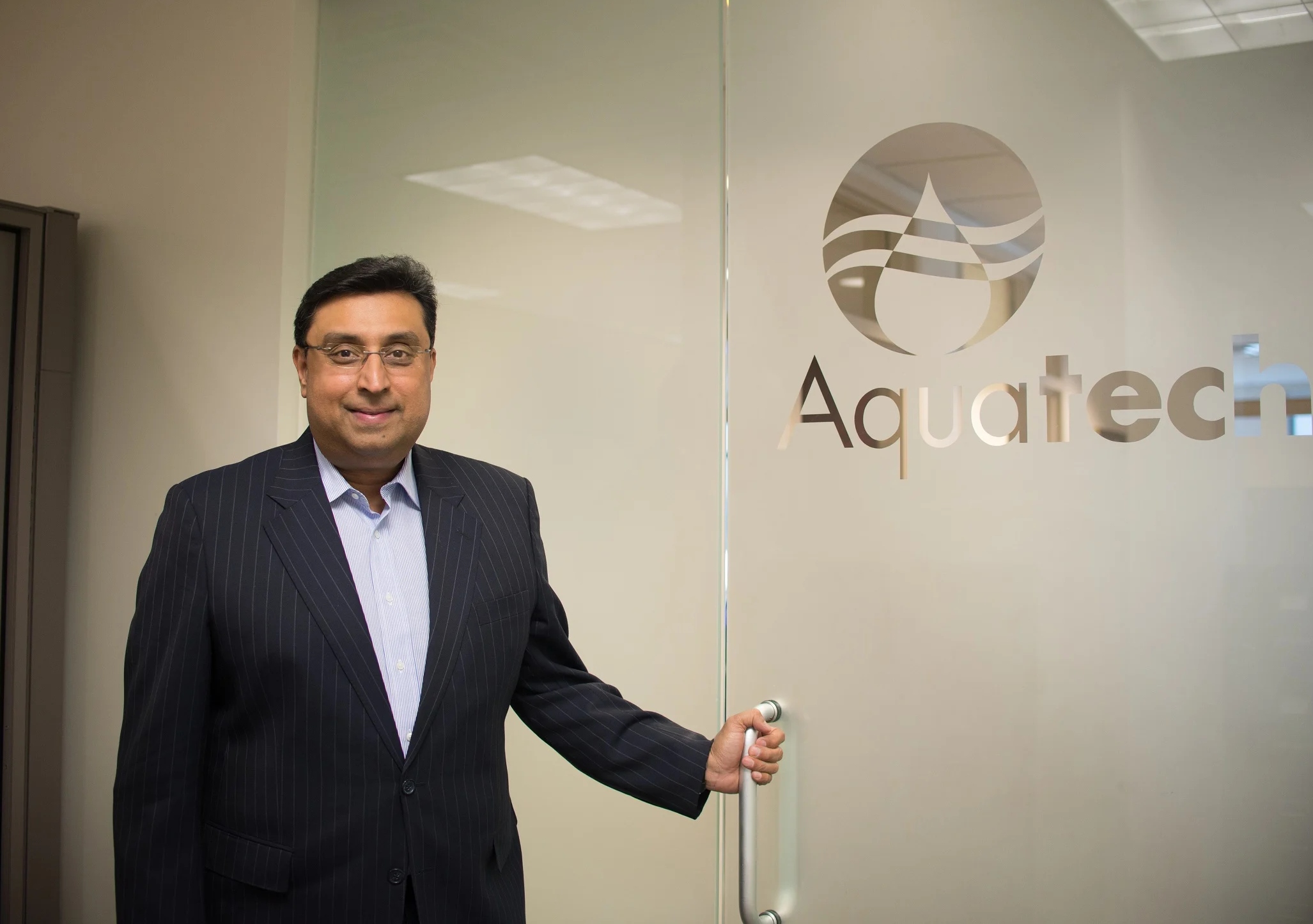We sat down with Venkee Sharma, Executive Chairman at Aquatech, to learn more about his views on climate adaptation and the steps the company is taking to prepare for an uncertain water future.
What do you understand about the term ‘climate adaptation technology’?
The future is uncertain, and an inevitable consequence of climate change will be the requirement of society and industries to adapt to changes that have already occurred and are ongoing.
From a water context, we consider climate adaptation technologies as those that help address water scarcity and water quality concerns in a cost-effective way.
Many customers will not have enough water to deliver on their business needs in the future or will face challenges related to water quality.
Regardless of the industry, everyone will have to tackle the challenge of unpredictable climatic conditions.
How do you think climate change will impact your business?
Aquatech enables and supports our customers in achieving their decarbonisation goals as well as climate adaptation and resilience needs. We believe decarbonisation and climate adaptation are of equal importance and are both growing business and innovation areas for our business.
We are already feeling the impacts of climate change – it is not just a concern for future generations but for us all. The changes we are seeing and the rate at which they are occurring are unprecedented. Adapting will require new perspectives, technologies, and innovative models to deal with this uncertain future. It will also require more investment.
“Adapting will require new perspectives, technologies, and innovative models to deal with this uncertain future”
While we are determined to deliver solutions for current issues like water scarcity, challenging wastewater, and decarbonisation, we are also focused on developing solutions that will allow our customers to address the uncertainties of climate in the future.
How do your water solutions help us prepare for an uncertain water future?
Our solutions are proven to deliver optimised energy and water usage while addressing increasingly challenging and complex water and wastewater.
These solutions include LoWatt low-energy solar-powered desalination technology, wastewater treatment, reuse and contaminant removal technologies, in addition to high-recovery and zero liquid discharge for addressing high organics with our patented high recovery reverse osmosis and membrane distillation technologies. We also use AI-based digital tools to drive efficiencies across many of our solutions, such as our BioFilmPro predictive biofouling monitoring technology.
What are some of the barriers to the adoption of your technology?
While admittedly improving, most industries and governments do not recognise the true value of water. This makes recycling projects unfeasible and curtails the progression of water-positive goals and net-zero targets.
Barriers within existing facilities relate to technology – due to higher capital expenditures, the need for rapid deployment of technologies, footprint requirements, as well as risk – and people – due to lack of skills and labour shortages.
A way to overcome these challenges is through business model innovation. We believe that operations outsourcing, or as Aquatech likes to refer to it – Water Technology as a Service – will drive the conversation. Outsourcing operations allows for reduced costs and risk, increased reliability, and the ability to consistently achieve sustainability targets over the long term.
Where do we go from here?
Decarbonisation efforts are already well established – most businesses are already working towards achieving goals and sustaining sustainability metrics. However, climate change adaptation goes one step further to address future uncertainties of a healthy water supply, and it deserves equal attention and investment.
Companies like Aquatech, the media, governments and financial institutions will need to continue to prioritise climate change mitigation to ensure everyone understands the urgency of the situation and the need for focused action.
Industries and municipalities need to think about both short- and long-term options regarding their water, and we must start preparing now to ensure that we can adapt to the changing climate landscape.
This article was originally published in our Issue 3 magazine available here.







